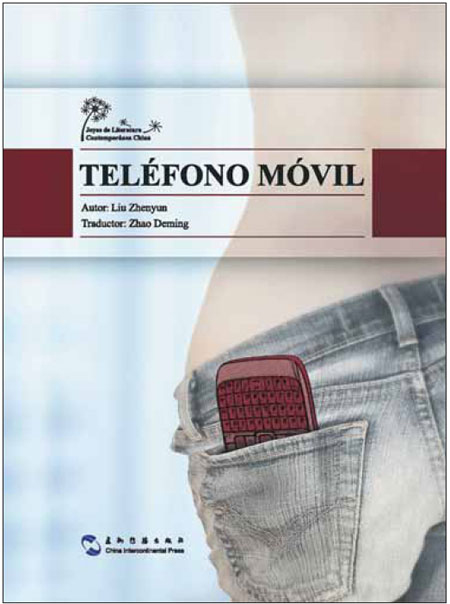 |
|
Maodun Literature prize winner Liu Zhenyun's Cellphone was published in Spanish. |
"We see a great opportunity for contemporary Chinese writing," Li says, adding he believes it is a mirror of the profound changes in society over the last 30 years.
He says there is more interest in China from Latin countries like Mexico. "China is a developing country that they feel they can sympathize with."
Beginning May 2011, China Intercontinental Press started translating works and has so far published four novels in Spanish, including Maodun Literature Award winner Liu Zhenyun's Cellphone and the youthful Zhang Yueran's Ten Loves.
It will publish 10 more in June and November, and another 10 in 2014, covering 45 Chinese writers, including Chi Zijian, Mai Jia, Su Tong and Bi Feiyu.
To promote these books, China Intercontinental Press has organized literary forums and attended book fairs.
Planeta, the largest Spanish-language publishing group, has agreed to jointly publish Mai Jia's Secret Plot, a catchy story about spies.
Li says his company employs two translators to work on a book, who have Chinese and Spanish as mother languages, in order to ensure quality. Spanish writers will add the finishing touches to books to make them even more appealing.
"In case the original Chinese texts are difficult, we encourage the translators to communicate with the writers."
Li adds literary agents, introductory prefaces and changes to typesetting are also intended to target particular readers.
"Once the mechanism of the Spanish project is fully tested, we will be able to apply it to more regions," Li adds.
The administration's deputy director Wu Shulin says CBI has made progress in terms of quantity and quality.
"The world wants to see more Chinese super-bestsellers that can bomb the international market," Wu says.
"Mo Yan winning the Nobel offers great timing for Chinese writers to be read more globally."
Related:
|
|
|
| Book boom |
Author's hometown draws tourists
Tourists swarmed to the hometown of Mo Yan, winner of the 2012 Nobel Prize for Literature. More...
|
|
|
|
|
|
|
|